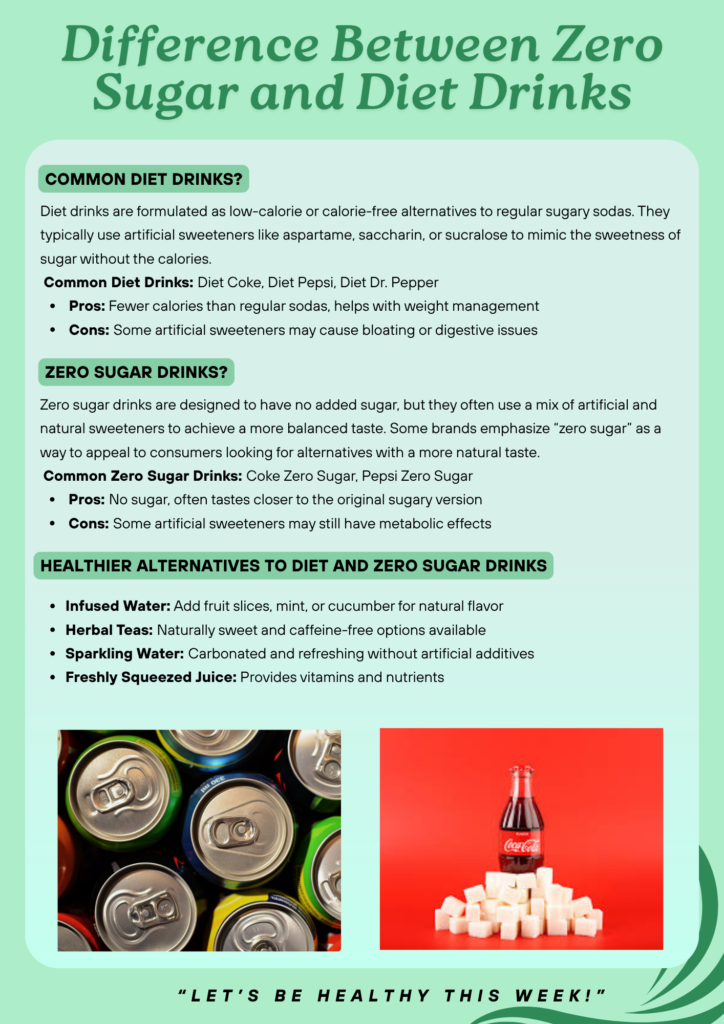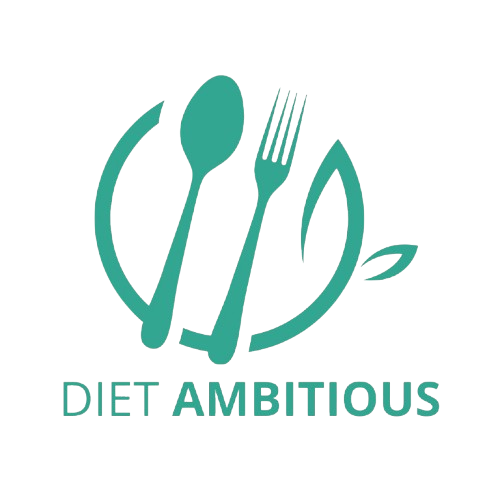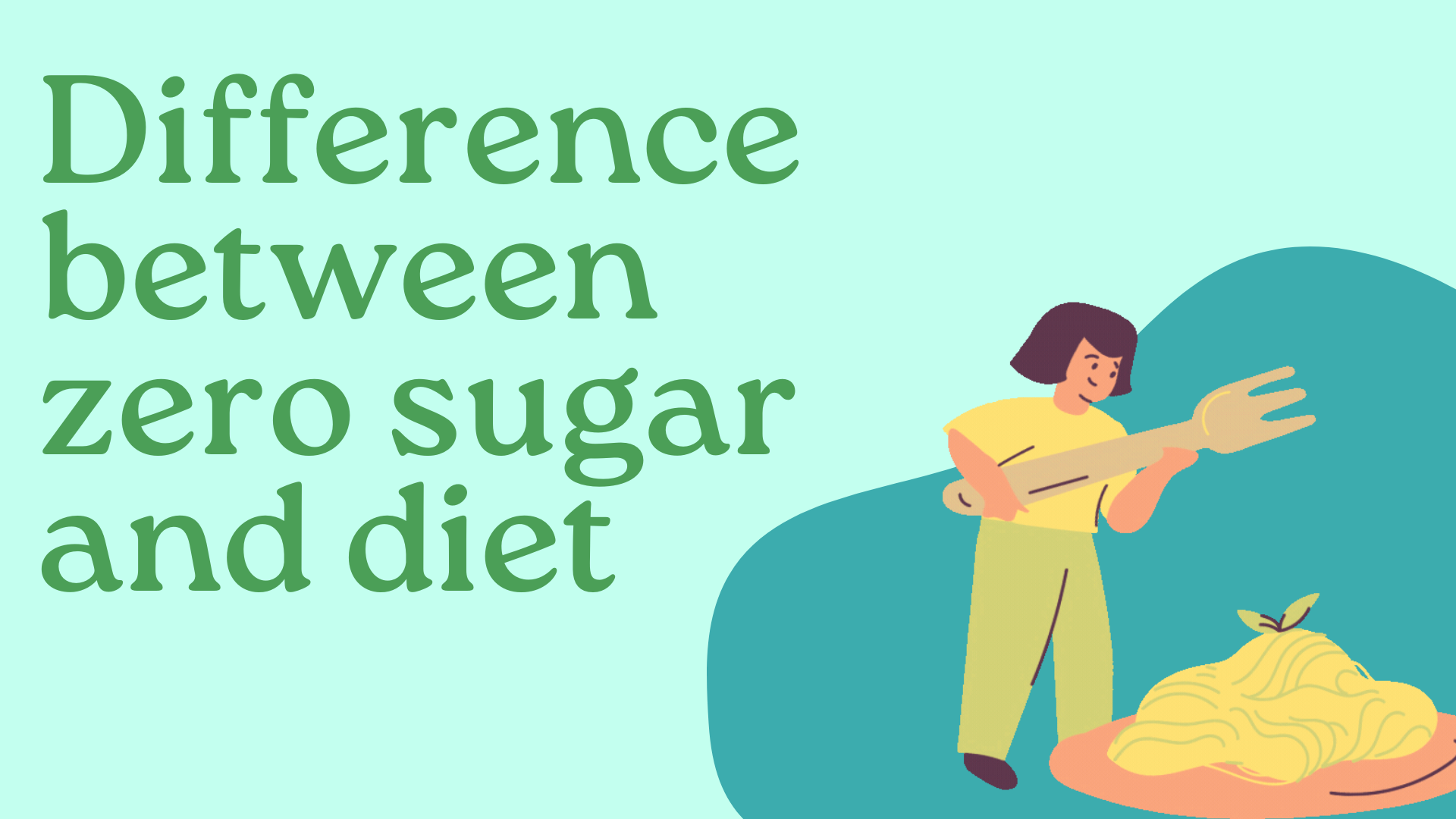Wondering about the difference between zero sugar and diet drinks. When choosing a healthier beverage option, many people come across zero sugar and diet drinks.
While they may seem similar, there are key differences between the two. Both options aim to reduce sugar intake, but they use different formulations and sweeteners, which can affect taste, health impact, and consumer preference.
Table of Contents
Understanding these differences can help you make a more informed choice.
Common Diet Drinks?
Diet drinks are formulated as low-calorie or calorie-free alternatives to regular sugary sodas. They typically use artificial sweeteners like aspartame, saccharin, or sucralose to mimic the sweetness of sugar without the calories.
🧃 Common Diet Drinks: Diet Coke, Diet Pepsi, Diet Dr. Pepper
✅ Pros: Fewer calories than regular sodas, helps with weight management
❌ Cons: Some artificial sweeteners may cause bloating or digestive issues
What Are Zero Sugar Drinks?
Zero sugar drinks are designed to have no added sugar, but they often use a mix of artificial and natural sweeteners to achieve a more balanced taste. Some brands emphasize “zero sugar” as a way to appeal to consumers looking for alternatives with a more natural taste.
🥤 Common Zero Sugar Drinks: Coke Zero Sugar, Pepsi Zero Sugar
✅ Pros: No sugar, often tastes closer to the original sugary version
❌ Cons: Some artificial sweeteners may still have metabolic effects
Key Differences
| Feature | Diet Drinks | Zero Sugar Drinks |
|---|---|---|
| Sweeteners Used | Artificial (Aspartame, Saccharin, etc.) | Blend of artificial & natural (Aspartame, Acesulfame K, etc.) |
| Taste | Lighter, less sweet | Closer to original soda taste |
| Branding | Marketed for weight loss | Marketed as sugar-free but full flavor |
| Health Impact | May cause bloating, mixed research on long-term effects | Similar effects, but fewer aftertaste complaints |
👨⚕️ Who Should Avoid These Drinks?
- People with phenylketonuria (PKU) should avoid aspartame.
- Those experiencing digestive issues or bloating may want to limit artificial sweeteners.
- Individuals looking to reduce processed food intake may prefer natural alternatives.
Healthier Alternatives to Diet and Zero Sugar Drinks
If you’re looking to cut down on sugar and artificial sweeteners, here are some healthier options:
Infused Water: Add fruit slices, mint, or cucumber for natural flavor
Herbal Teas: Naturally sweet and caffeine-free options available
Sparkling Water: Carbonated and refreshing without artificial additives
Freshly Squeezed Juice: Provides vitamins and nutrients
Which One Is Better?
It depends on your personal preference and dietary goals:
✅ If you prefer a classic diet soda taste and don’t mind artificial sweeteners, diet drinks may work for you.
✅ If you want a closer taste to regular soda but with no sugar, zero sugar drinks might be the better option.
✅ If you have sensitivity to artificial sweeteners, consider drinks with natural alternatives like stevia or monk fruit.
Final Thoughts
Both zero sugar and diet drinks help reduce sugar intake, but they are not necessarily “healthy” beverages. If you’re looking for a healthier alternative, consider water, herbal teas, or naturally flavored sparkling water.
Ultimately, moderation is key—consuming these drinks occasionally is fine, but relying on them daily may not be the best choice for overall health. Always read labels and listen to your body’s response to different sweeteners!





